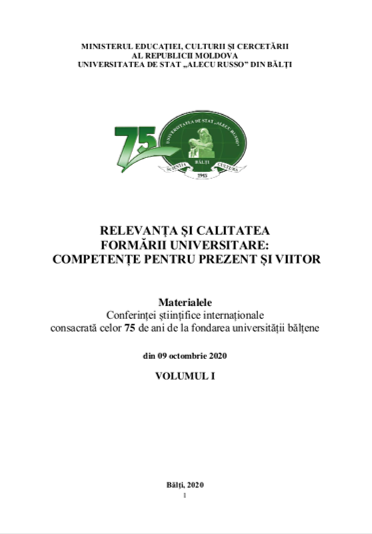Critica literară românească: cazul continuitate-ruptură
Romanian literary criticism: the case of continuity-rupture
Author(s): Natalia Hariton
Subject(s): Language and Literature Studies, Studies of Literature, Romanian Literature
Published by: Biblioteca Ştiinţifică a Universităţii de Stat Alecu Russo
Keywords: continuity; rupture; tradition; modernity; literary criticism
Summary/Abstract: One of the most exploited topics of Romanian criticism concerns the place of Roma-nian literature in relation to the literature in the "field of power", based on the terminological binomial continuity-rupture. Leaving the area of a general interpretation, the terms here reach a neuralgic point for the Romanian exegesis, surprising the gap between the will to renew the literature (through rupture) and the will to preserve its traditional background (through continuity). The great Romanian critical theories explore, with the help of the concepts of continuity - rupture, the problem of the status of the Romanian literature in relation to the "center of power" (Pierre Bourdieu), generating a specific vocabulary: the form without background (Titu Maiorescu), synchronism, the change of aesthetic values (Eugen Lovinescu), the national specific (Garabet Ibrăileanu, G. Călinescu), protocronism (Edgar Papu), the "complexes" of Romanian literature (Mircea Martin), the modernization through tradition (Dan C. Mihăilescu), the synchronization with the past (Șerban Axinte), export criticism, "fifth essence" (Andrei Terian), fall culture, mimicry of synchronization (Angelo Mitchievici), delay to European cultures (Ion Bogdan Lefter) etc. Viewed from the perspective of these dimensions, literary criticism gains a strong self-awareness, or legitimizing the critical spirit is not possible without identifying the mechanisms of rupture, but also of continuity. The desire for synchronization derives from the need to accept the idea that the discourse of the writers and critics in Bessarabia is connected to the movement of ideas from the Romanian and Western spaces and proves that they write not only with and for themselves, within the geographical borders, but write with the world.
Book: Relevanța și calitatea formării universitare: competențe pentru prezent și viitor. Vol.I
- Page Range: 127-131
- Page Count: 5
- Publication Year: 2020
- Language: Romanian
- Content File-PDF

